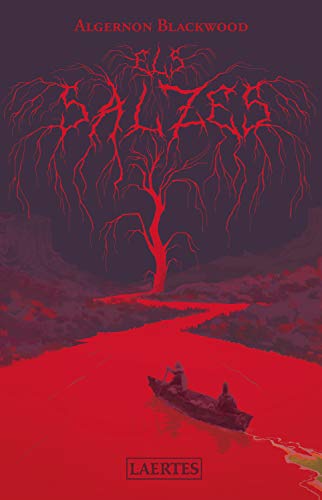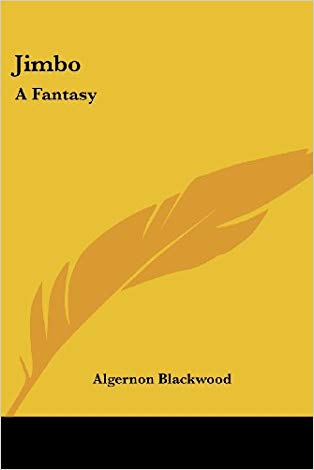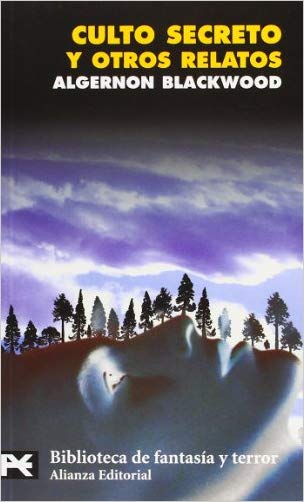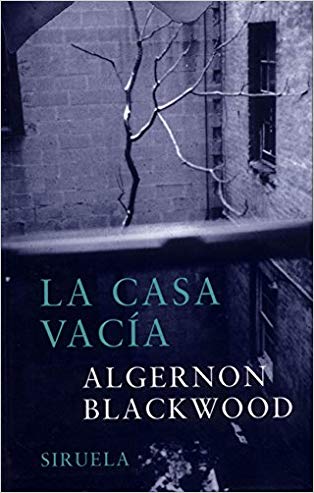Ir al contenido
Resultados de la búsqueda para: Algernon Blackwood








 PAN?S GARDEN ? Pan?s Garden is a thematic collection of stories which, in the words of the author, ?illustrates that characteristic belief, present in all my work, that there exists a definite relationship between Human Beings and Nature.? From the opening novella, ?The Man Whom the Trees Loved??in which Nature welcomes and absorbs the soul of a man?to the concluding ?The Temptations of the Clay??in which Nature rejects the spirit of the man who tries to profit from it?we are transported into a natural world where the elements hold sway. Mike Ashley, in his introduction, calls Pan?s Garden ?the definitive volume of Blackwood?s short stories. . . because it defines the true nature of Blackwood?s writing.? ? INCREDIBLE ADVENTURES ? Incredible Adventures represents what biographer Mike Ashley calls "the last outburst of his golden period" and is comprised of three novellas and two short stories.? Here, nature is a living force, truth is the only religion and the past holds sway over the present.? At times almost surreal in their intensity, these tales exert a strange power over the reader, opening ou
PAN?S GARDEN ? Pan?s Garden is a thematic collection of stories which, in the words of the author, ?illustrates that characteristic belief, present in all my work, that there exists a definite relationship between Human Beings and Nature.? From the opening novella, ?The Man Whom the Trees Loved??in which Nature welcomes and absorbs the soul of a man?to the concluding ?The Temptations of the Clay??in which Nature rejects the spirit of the man who tries to profit from it?we are transported into a natural world where the elements hold sway. Mike Ashley, in his introduction, calls Pan?s Garden ?the definitive volume of Blackwood?s short stories. . . because it defines the true nature of Blackwood?s writing.? ? INCREDIBLE ADVENTURES ? Incredible Adventures represents what biographer Mike Ashley calls "the last outburst of his golden period" and is comprised of three novellas and two short stories.? Here, nature is a living force, truth is the only religion and the past holds sway over the present.? At times almost surreal in their intensity, these tales exert a strange power over the reader, opening ou
 THE LOST VALLEY ? ? Algernon Blackwood spent the first half of 1909 traveling around Switzerland. When he returned to England, he produced around twenty stories, most of which formed the basis for his next collection, The Lost Valley, published by Eveleigh Nash in June, 1910. Here are supernatural nature mysteries, ghost stories and visions galore?tales of loss and redemption, and the horror of the unknown?taking the reader from the stark terror of ?The Wendigo? and ?Old Clothes? to the light of hope in ?Carlton?s Drive? and the spiritual finale, ?The Eccentricity of Simon Parnacute.????? ???? ? THE WOLVES OF GOD ? By 1920, Blackwood had recovered from the depression of the First World War, and began writing again with a renewed zest, inspired to some degree by his explorer friend, Wilfrid Wilson, to whom he gave co-credit for the 1921 collection, The Wolves of God, though all the stories were by Blackwood. Many of these tales are wilderness stories, like the title story, "Running Wolf," "First Hate" and "The Valley of the Beasts." ??????????????????????????????????????????????????????? But The Wolve
THE LOST VALLEY ? ? Algernon Blackwood spent the first half of 1909 traveling around Switzerland. When he returned to England, he produced around twenty stories, most of which formed the basis for his next collection, The Lost Valley, published by Eveleigh Nash in June, 1910. Here are supernatural nature mysteries, ghost stories and visions galore?tales of loss and redemption, and the horror of the unknown?taking the reader from the stark terror of ?The Wendigo? and ?Old Clothes? to the light of hope in ?Carlton?s Drive? and the spiritual finale, ?The Eccentricity of Simon Parnacute.????? ???? ? THE WOLVES OF GOD ? By 1920, Blackwood had recovered from the depression of the First World War, and began writing again with a renewed zest, inspired to some degree by his explorer friend, Wilfrid Wilson, to whom he gave co-credit for the 1921 collection, The Wolves of God, though all the stories were by Blackwood. Many of these tales are wilderness stories, like the title story, "Running Wolf," "First Hate" and "The Valley of the Beasts." ??????????????????????????????????????????????????????? But The Wolve
















 Algernon Blackwood (1869-1951) fue uno de los artífices fundamentales de la gran revolución que experimentó el cuento de miedo a comienzos del siglo XX. De familia aristocrática y ultracalvinista, desde muy joven se rebeló contra las creencias de sus mayores, interesándose por las religiones orientales y el ocultismo, por lo que su padre lo envió a Canadá, donde se vio obligado a desempeñar los más variados oficios para sobrevivir. Buscando mejorar su situación se trasladó a Nueva York, y a finales del siglo XIX regresó a Inglaterra, donde empezó a publicar cuentos en revistas tras el éxito de «A haunted Island» (1899). Su obra es copiosa y variada: aparte de varias novelas fantásticas y un par de piezas teatrales, escribió a lo largo de más de 50 años alrededor de ciento cincuenta relatos ;la mayoría inspirados en lances reales de su vida; agrupados en casi una veintena de volúmenes. La mayoría de estos relatos son inquietantes o propiamente terroríficos, pero nunca macabros; en todos ellos palpita una visión numinosa y arquetípica del cosmos que ofrece al lector una experiencia con las fuerzas y los invisibles poderes elementales que gravitan a nuestro alrededor. La presente antología recoge catorce relatos, fechados entre 1906 y 1927, en los que se pone de manifiesto la original aportación de Blackwood al moderno cuento de terror.
Algernon Blackwood (1869-1951) fue uno de los artífices fundamentales de la gran revolución que experimentó el cuento de miedo a comienzos del siglo XX. De familia aristocrática y ultracalvinista, desde muy joven se rebeló contra las creencias de sus mayores, interesándose por las religiones orientales y el ocultismo, por lo que su padre lo envió a Canadá, donde se vio obligado a desempeñar los más variados oficios para sobrevivir. Buscando mejorar su situación se trasladó a Nueva York, y a finales del siglo XIX regresó a Inglaterra, donde empezó a publicar cuentos en revistas tras el éxito de «A haunted Island» (1899). Su obra es copiosa y variada: aparte de varias novelas fantásticas y un par de piezas teatrales, escribió a lo largo de más de 50 años alrededor de ciento cincuenta relatos ;la mayoría inspirados en lances reales de su vida; agrupados en casi una veintena de volúmenes. La mayoría de estos relatos son inquietantes o propiamente terroríficos, pero nunca macabros; en todos ellos palpita una visión numinosa y arquetípica del cosmos que ofrece al lector una experiencia con las fuerzas y los invisibles poderes elementales que gravitan a nuestro alrededor. La presente antología recoge catorce relatos, fechados entre 1906 y 1927, en los que se pone de manifiesto la original aportación de Blackwood al moderno cuento de terror.




 PAN?S GARDEN ? Pan?s Garden is a thematic collection of stories which, in the words of the author, ?illustrates that characteristic belief, present in all my work, that there exists a definite relationship between Human Beings and Nature.? From the opening novella, ?The Man Whom the Trees Loved??in which Nature welcomes and absorbs the soul of a man?to the concluding ?The Temptations of the Clay??in which Nature rejects the spirit of the man who tries to profit from it?we are transported into a natural world where the elements hold sway. Mike Ashley, in his introduction, calls Pan?s Garden ?the definitive volume of Blackwood?s short stories. . . because it defines the true nature of Blackwood?s writing.? ? INCREDIBLE ADVENTURES ? Incredible Adventures represents what biographer Mike Ashley calls "the last outburst of his golden period" and is comprised of three novellas and two short stories.? Here, nature is a living force, truth is the only religion and the past holds sway over the present.? At times almost surreal in their intensity, these tales exert a strange power over the reader, opening ou
PAN?S GARDEN ? Pan?s Garden is a thematic collection of stories which, in the words of the author, ?illustrates that characteristic belief, present in all my work, that there exists a definite relationship between Human Beings and Nature.? From the opening novella, ?The Man Whom the Trees Loved??in which Nature welcomes and absorbs the soul of a man?to the concluding ?The Temptations of the Clay??in which Nature rejects the spirit of the man who tries to profit from it?we are transported into a natural world where the elements hold sway. Mike Ashley, in his introduction, calls Pan?s Garden ?the definitive volume of Blackwood?s short stories. . . because it defines the true nature of Blackwood?s writing.? ? INCREDIBLE ADVENTURES ? Incredible Adventures represents what biographer Mike Ashley calls "the last outburst of his golden period" and is comprised of three novellas and two short stories.? Here, nature is a living force, truth is the only religion and the past holds sway over the present.? At times almost surreal in their intensity, these tales exert a strange power over the reader, opening ou THE LOST VALLEY ? ? Algernon Blackwood spent the first half of 1909 traveling around Switzerland. When he returned to England, he produced around twenty stories, most of which formed the basis for his next collection, The Lost Valley, published by Eveleigh Nash in June, 1910. Here are supernatural nature mysteries, ghost stories and visions galore?tales of loss and redemption, and the horror of the unknown?taking the reader from the stark terror of ?The Wendigo? and ?Old Clothes? to the light of hope in ?Carlton?s Drive? and the spiritual finale, ?The Eccentricity of Simon Parnacute.????? ???? ? THE WOLVES OF GOD ? By 1920, Blackwood had recovered from the depression of the First World War, and began writing again with a renewed zest, inspired to some degree by his explorer friend, Wilfrid Wilson, to whom he gave co-credit for the 1921 collection, The Wolves of God, though all the stories were by Blackwood. Many of these tales are wilderness stories, like the title story, "Running Wolf," "First Hate" and "The Valley of the Beasts." ??????????????????????????????????????????????????????? But The Wolve
THE LOST VALLEY ? ? Algernon Blackwood spent the first half of 1909 traveling around Switzerland. When he returned to England, he produced around twenty stories, most of which formed the basis for his next collection, The Lost Valley, published by Eveleigh Nash in June, 1910. Here are supernatural nature mysteries, ghost stories and visions galore?tales of loss and redemption, and the horror of the unknown?taking the reader from the stark terror of ?The Wendigo? and ?Old Clothes? to the light of hope in ?Carlton?s Drive? and the spiritual finale, ?The Eccentricity of Simon Parnacute.????? ???? ? THE WOLVES OF GOD ? By 1920, Blackwood had recovered from the depression of the First World War, and began writing again with a renewed zest, inspired to some degree by his explorer friend, Wilfrid Wilson, to whom he gave co-credit for the 1921 collection, The Wolves of God, though all the stories were by Blackwood. Many of these tales are wilderness stories, like the title story, "Running Wolf," "First Hate" and "The Valley of the Beasts." ??????????????????????????????????????????????????????? But The Wolve







 Algernon Blackwood (1869-1951) fue uno de los artífices fundamentales de la gran revolución que experimentó el cuento de miedo a comienzos del siglo XX. De familia aristocrática y ultracalvinista, desde muy joven se rebeló contra las creencias de sus mayores, interesándose por las religiones orientales y el ocultismo, por lo que su padre lo envió a Canadá, donde se vio obligado a desempeñar los más variados oficios para sobrevivir. Buscando mejorar su situación se trasladó a Nueva York, y a finales del siglo XIX regresó a Inglaterra, donde empezó a publicar cuentos en revistas tras el éxito de «A haunted Island» (1899). Su obra es copiosa y variada: aparte de varias novelas fantásticas y un par de piezas teatrales, escribió a lo largo de más de 50 años alrededor de ciento cincuenta relatos ;la mayoría inspirados en lances reales de su vida; agrupados en casi una veintena de volúmenes. La mayoría de estos relatos son inquietantes o propiamente terroríficos, pero nunca macabros; en todos ellos palpita una visión numinosa y arquetípica del cosmos que ofrece al lector una experiencia con las fuerzas y los invisibles poderes elementales que gravitan a nuestro alrededor. La presente antología recoge catorce relatos, fechados entre 1906 y 1927, en los que se pone de manifiesto la original aportación de Blackwood al moderno cuento de terror.
Algernon Blackwood (1869-1951) fue uno de los artífices fundamentales de la gran revolución que experimentó el cuento de miedo a comienzos del siglo XX. De familia aristocrática y ultracalvinista, desde muy joven se rebeló contra las creencias de sus mayores, interesándose por las religiones orientales y el ocultismo, por lo que su padre lo envió a Canadá, donde se vio obligado a desempeñar los más variados oficios para sobrevivir. Buscando mejorar su situación se trasladó a Nueva York, y a finales del siglo XIX regresó a Inglaterra, donde empezó a publicar cuentos en revistas tras el éxito de «A haunted Island» (1899). Su obra es copiosa y variada: aparte de varias novelas fantásticas y un par de piezas teatrales, escribió a lo largo de más de 50 años alrededor de ciento cincuenta relatos ;la mayoría inspirados en lances reales de su vida; agrupados en casi una veintena de volúmenes. La mayoría de estos relatos son inquietantes o propiamente terroríficos, pero nunca macabros; en todos ellos palpita una visión numinosa y arquetípica del cosmos que ofrece al lector una experiencia con las fuerzas y los invisibles poderes elementales que gravitan a nuestro alrededor. La presente antología recoge catorce relatos, fechados entre 1906 y 1927, en los que se pone de manifiesto la original aportación de Blackwood al moderno cuento de terror.